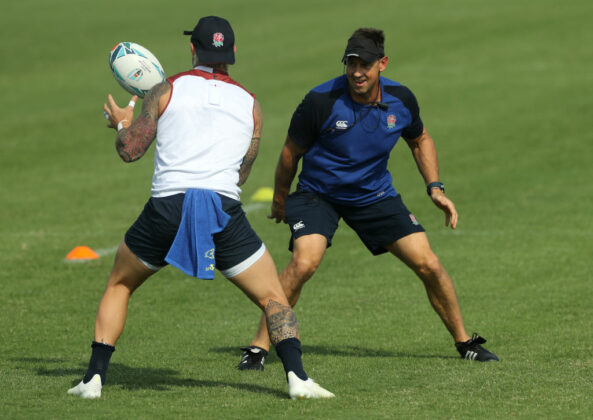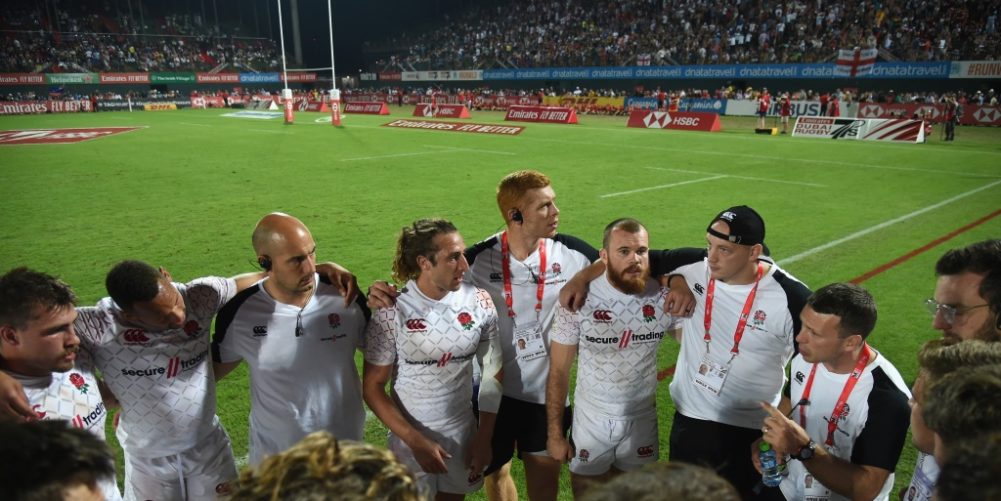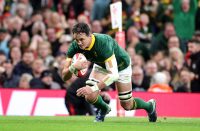SIMON Amor should start his stint as England‘s new attack coach by asking the players to remind themselves of just how much attacking variety and ability there is in the squad.
There is the kicking of Owen Farrell and George Ford, the pace of Jonny May, the power of Manu Tuilagi, and the elusiveness of Anthony Watson and Jack Nowell.
I would like to see him get them to put their foot on the accelerator right from the start. For me, the England attack can still be too regimented, where they always seem to be having to get into a position to do something – rather than take the shortest route to actually doing it.
For instance, if it is a three-phase play, and it breaks down in the second phase, then England seem to take a very long time to re-set. My response is to keep it simple. If the outcome is painfully slow ball, don’t mess around, kick it! But kick it smart, either a contestable kick, depending where you are on the field or a well executed kick in behind the back three, preferably making them turn.
Amor must get energy into England’s game. For example, let’s not take 20 seconds to get set from a box-kick, let’s speed it up. Rather than slowing it down to get set, England should be playing fast from everywhere.
I’d like to see a real change, so that England become the team that other teams are envious of. Let’s have England being the pace-setters, not New Zealand.
Amor should also be looking to build on the attacking structure left by Scott Wisemantel, the Australian who preceded him as England attack coach.
Amor is going to be pretty busy because he will be alternating his England attacking role with coaching the GB Sevens team for the Tokyo Olympics, but he inherits a good legacy from Wisemantel, who initially joined England as a consultant before becoming full-time in the 18 months before the 2019 World Cup.
I always thought as a player that tactically the Australian attack was something to be admired because it was dynamic and smart. It is based very much on a predominantly Rugby League culture down there, and even the guys who play union watch a lot of league – and it means that they have an understanding of attack and defence which is pretty good.
Wisemantel had played both codes, and even though Farrell and Ford had a pretty good understanding before he arrived of how England aimed to attack, he definitely added to that as soon as he joined the squad.
Wisemantel’s initial impact came during the 2018 summer tour of South Africa, when, early on in the first two Tests, the England backs played some quick, electric attacking rugby that resulted in them scoring a number of good tries.
It was also apparent at times during the 2019 Six Nations and the World Cup. The semi-final against New Zealand was one of the best displays by England in this or any era – and for any England fan around the age of 60 it would be one of the five best performances in their memory.
Wisemantel played a big part in that, and now it is up to Amor to make his own mark. Hopefully, this will involve him building on a heads-up reading of the game so that England’s backs and forwards play what they see in front of them.

Amor became a Sevens specialist, but he also played fifteens, and that puts him in a good place to coach players to be heads-up in attack.
Sevens is more wide open than fifteens, but there is the same emphasis on reading the right options. The difference is that there are fewer moving parts in Sevens, and that makes it easier to change direction and take a different option.
Sevens can be brutal because the impact of a break, or big hit, is magnified more, but it is still about manipulating defences.
When there are fewer players on the pitch it means that making changes, for example in a set move, means less people involved, and less disruption – and that breeds a mindset where players are comfortable with having to adapt quickly.
I would love to see more changes of direction in fifteens. In Sevens you are continually looking for mismatches and you get a lot of scanning and a lot more communication – particularly in calling for the ball – which means players are more instinctive and receptive to a decision made on the hoof.
One of the elements in the modern fifteens game that is repetitive, and restrictive, is called “folding”, where teams play consistently in one direction.
This usually features pods of players in pre-ordained roles. If you have two front row forwards and a second row in a pod with a centre lined up behind them, if the centre makes a break, you will not have the right players in the right place at the right time. There is no way two front rowers will be able to support it, because they are not fast enough.
First phase is a great area to attack from, especially scrums now that the backline has to be five metres back, and, as New Zealand were the first to show, if you really embrace it, you can score plenty of tries.
That’s why coaches should put players where they are most effective, rather than play all the time with the priority on a defensive safety net if you lose the ball.
We have had an era of defence, so with Amor let’s have an era of attack. When Australia came in 1984 with the Ellas, Lynaghs, and Campeses, everyone in the UK and Ireland was gobsmacked by what beautiful rugby it was.
Then we saw the likes of Christian Cullen and Geoff Wilson from New Zealand, and after that the Richie McCaw and Dan Carter era of just brilliant, ebullient attack.
This could be a time of smart attacking rugby again, especially if players of the quality of Damian Penaud, Stuart Hogg, Romain
Ntamack and Watson are set free by getting quick ball.
You will not have a great attack without consistently quick ball, and Amor should be pestering the England forward coaches – whether scrum, line-out, or breakdown – to produce it, because otherwise the running game is null-and-void, and we have to rely on the kicking department.
That’s not to say England cannot attack very effectively through kicks, as you saw with the kick-pass and chips that worked so effectively for May last season, in particular against France. However, it is often said that teams that go out to kick forget how to pass, and vice-versa.
England need the full range of attacking weapons – and the main principles are the same as always. Manipulate the defence, deception, accurate passing, good decision-making, and speed. In addition, don’t throw 30-yard passes if it is a three-on-two. Draw and pass, do not send a long ball so that it arrives with a gang of tacklers because you have not committed any defenders.
If the execution of basic skills is poor an attack has no chance, but England have two good distributors in Farrell and Ford. Unfortunately, in the World Cup final, Ben Youngs was just off his game – his pass was a bit slow, and there was a domino effect from there.
Skills have to be slick and accurate, and the benchmarks for England are the two Irish games last season, and the semi-final win over New Zealand.
A lot of what players and coaches aim for was achieved in those games, and we don’t want performances from England below that level of skill and speed this season.























